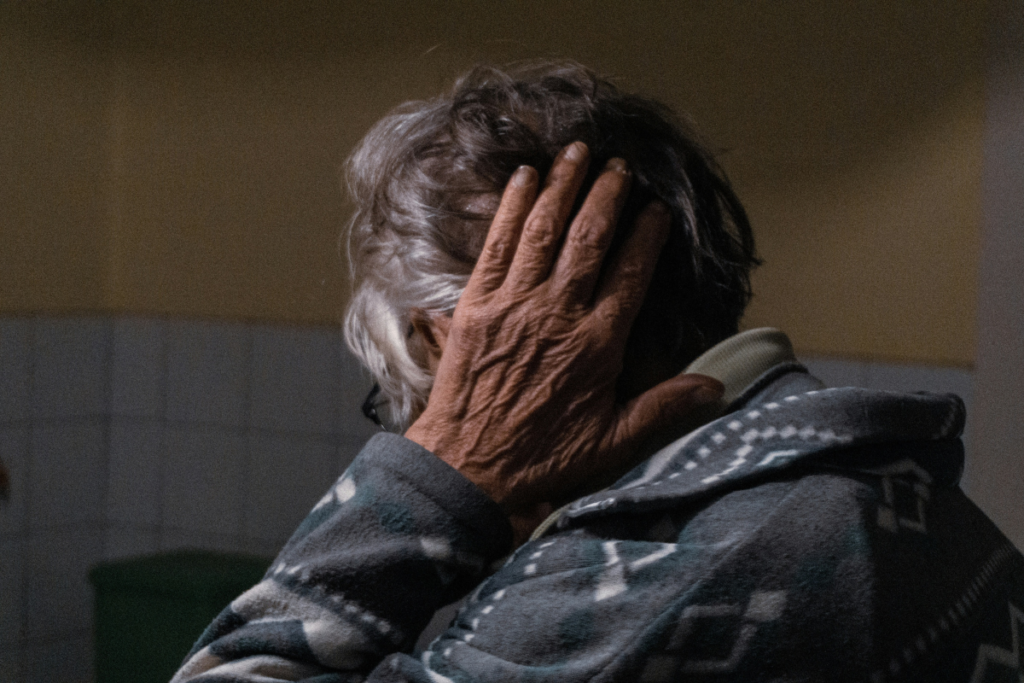Traumatic Brain Injury Lawyers in Somerset County, New Jersey

Helping Traumatic Brain Injury Survivors
Arlen Law Firm will be your advocate and partner during your TBI recovery in Somerset County, NJ.
Traumatic brain injuries, or TBIs, can require a lifetime of care and compromise. Even in mild cases, TBIs may cause physical discomfort, cognitive difficulties, and emotional dysregulation. Recovery can sometimes require costly surgery and long-term care.
From medical costs and wage loss to changes in routine and relationships, a traumatic brain injury can challenge every element of a person’s life. These immensely complicated cases are among the most difficult injuries to diagnose, treat, and overcome.
Brain injury cases can also be difficult to prove, as they are often “invisible injuries.” Insurance companies will use this fact to their advantage; they will rarely be up front with brain injury victims about the long-term costs—or their right to compensation.
Work an experienced TBI Lawyer in Somerset County, NJ
We understand the lasting effects of a traumatic brain injury—and that no two brain injuries are exactly the same. From wage loss and loss of earning capacity to difficulty connecting with a spouse or loved one, we come prepared to fight for your recovery, from every angle. Our law firm works closely with a team of trusted medical professionals to fully understand your case—and then make your case to an insurance company, mediator or jury.
Call for a Free Consultation
If you have suffered a traumatic brain injury, you need legal care just as much as medical care. Call us for your free consultation.

“Do I need a traumatic brain injury lawyer?”
Traumatic brain injuries are frequently misdiagnosed by doctors, and can be difficult to prove. If you or your loved one has suffered a traumatic brain injury, we highly recommend that you speak to a traumatic brain injury lawyer about your case. Arlen Law Firm offers phone consultations at (908) 212 7660. We also offer in-person consultations: both home visits, and consultations at our New Jersey office.
What kind of compensation can I get for my traumatic brain injury?
Some brain injuries will require a lifetime of cost, care, and compromise. When you speak to a traumatic brain injury lawyer in Hillsborough, NJ, they will determine the costs you have incurred and get a clearer sense of your injury prognosis. (This will help determine any additional costs you may need to pay throughout your life.)
Injury compensation may include:
- Hospital visits
- Rehabilitation
- Medication
- Mobility devices
- In-home care
- Life care planning
- Wage loss/loss of earning capacity
- Loss of consortium (loss of intimacy and connection to loved ones)
- Pain and suffering
- Punitive damages
These are complicated cases that can sometimes be difficult to prove. Insurance companies use this to their advantage, and will not be forthcoming about the long-term costs of living with a TBI—or your right to compensation.
Talk to a TBI Attorney Now: (908) 212 7660
“How do I know if I have a brain injury?”
If you believe you have suffered a brain injury, see a doctor immediately.
Brain injuries can happen anywhere, at any time, wherever there is a significant application of force to the head. Brain injuries can be difficult to diagnose because they are often invisible injuries. Some of the most common causes of TBIs are:
- Motor vehicle accidents
- Birth injuries
- Slip and fall accidents
- Falling objects
- Physical assaults
- Defective products (including helmets), and/or
- Construction site accidents
Traumatic brain injuries can have devastating effects. The Mayo Clinic offers a full list of changes you may experience with brain injury. If you are experiencing any of the symptoms below, talk to a doctor immediately.
Traumatic Brain Injury Symptoms
Physical Symptoms
- Headache
- Physical fatigue
- Nausea or vomiting
- Dizziness
- Loss of balance
- Seizures/spasticity
- Menstrual irregularities
- Infertility
Behavioral Symptoms
- Personality change
- Mood swings
- Withdrawal from friends and family
- Resistance to health care
- Poor hygiene
- Loss of libido
- Criminal activity
- Lack of emotion
- Substance abuse
- Aggression
- Impulsivity
- Apathy
- Irritability
Sensory Symptoms
- Loss of smell
- Loss of taste or an odd taste in your mouth
- Blurred vision
- Ringing in the ears (tinnitus)
- Changes in the ability to smell
- Light sensitivity (photophobia)
- Noise sensitivity
- Alcohol sensitivity
Cognitive and Mental Symptoms
- Loss of consciousness (can last few seconds to a few minutes)
- Difficulty concentrating or multitasking
- Disorganized thinking/difficulty finishing tasks
- Difficulty reading or typing
- Delayed speech or slurring words
- Difficulty following conversations
- Feeling dazed, confused or disoriented
- Memory problems/amnesia
- Depression
- Anxiety
- Difficulty sleeping, or sleeping more than usual
- Cognitive/mental fatigue
- Hoarding
- Poor judgment
- Inability to recognize people or faces
Call Us Today
If you have experienced an injury that results in one of the symptoms listed above, talk to a traumatic brain injury lawyer today:
NOTE: You will probably not experience every item on these lists. After an injury to the head or neck, even one symptom is sufficient to be considered for a brain injury.
Traumatic Brain Injuries: Frequently Asked Questions
If you believe you have a brain injury, seek medical attention immediately.
What is a traumatic brain injury?
When most people think “traumatic brain injury”, they picture the initial impact: a car accident, football tackle, or falling object striking the head. The National Institute for Health defines a traumatic brain injury (TBI) as a medical affliction “caused by a forceful bump, blow, or jolt to the head or body, or from an object that pierces the skull and enters the brain.” Some symptoms last only a few days, while others can become lifelong conditions.
Many people do not realize that many of the most severe brain injury symptoms stem from medical negligence after the initial impact. Undiagnosed or undertreated brain injuries can lead to brain swelling, infections, and permanent brain damage. Surgical errors, including those resulting in birth injury, can also cause a traumatic brain injury.
At Arlen Law Firm, our New Jersey personal injury lawyers work tirelessly to prove the full extent of your injuries and hold the defendants accountable. We are also prepared to file product liability claims against the makers of products that were entrusted to keep you safe.
At Arlen Law Firm, our goal is to get full compensation for anyone living with a brain injury caused by someone else’s negligence. Call us today to discuss your claim: (908) 212 7660.
The Two Types of Traumatic Brain Injury
TBI injury victims may suffer two types of injuries:
Primary injury describes a blow to the head that results in impact force to the brain: for example, hitting your window or dashboard during a car accident, or being stuck on the head by a falling object. High-contact sports like football may also result in primary injuries to the brain.
Secondary injury is what happens within the brain structure immediately after the primary injury (generally within the first 72 hours). Secondary injuries include changes to skull pressure as the result of brain swelling and blood clots. Hypoxia, or lack of oxygen to the brain, is another common secondary injury. Secondary injuries can often be mitigated with decisive diagnosis and quick medical intervention, but they are often “invisible injuries”.
Closed Brain Injuries vs. Open Brain Injuries
Closed brain injuries. Closed brain injuries result in no wound or laceration to the head. They are typically caused through rapid movement and/or shaking, causing the brain tissue and blood vessels to bruise or tear. Motor vehicle accidents, slip and falls, and contact sports are common causes of closed brain injuries.
Open brain injuries. After blunt force to the head—a dog bites, motorcycle crash, shrapnel from a motor vehicle accident—the resulting damage to the skull may penetrate the brain and cause an open brain injury. These are immediately visible to others.
If you have suffered a brain injury, contact a Traumatic Brain Injury Lawyer immediately: (908) 212 7660
Is a concussion a traumatic brain injury?
Yes, a concussion is a type of traumatic brain injury. According to the CDC:
“[A] concussion is a type of traumatic brain injury caused by a bump, blow, or jolt to the head or by a hit to the body that causes the head and brain to move rapidly back and forth. This sudden movement can cause the brain to bounce around or twist in the skull, creating chemical changes in the brain and sometimes stretching and damaging brain cells.”
If you think you have a concussion, see a doctor as soon as possible. Without medical diagnosis and treatment, symptoms may worsen.

How do they diagnose a traumatic brain injury?
Diagnosing a TBI can only be done by a licensed medical professional. Many traumatic brain injury survivors will not be fully aware of the effects of their injury until a few days, weeks, and sometimes even months after their accident.
If you suspect that you or someone you love has a traumatic brain injury, seek medical attention as soon as possible.
How do doctors diagnose a TBI?
Doctors will conduct an oral and physical examination to determine the working condition of their patient’s brain. The examination process generally includes questions to assess processing speed, spatial awareness, awareness of current events, and so forth.
If a patient is in a coma, doctors will use the Glasgow Coma Scale test, a stimulation-response test that includes verbal questions and motor response stimuli, to evaluate their patient. Doctors will frequently perform diagnostic imaging tests, including computed tomography (CT) scans and magnetic resonance imaging (MRI), to check for brain bleed and/or bruising.
Why are TBIs so difficult to diagnose?
Because of the vast complexity of human brain function, the extent of many traumatic brain injuries are not readily apparent at an initial medical exam. Moreover, no medical imaging or blood test can correctly diagnose a TBI every time. Your doctor will only be able to make an exhaustive diagnosis after a full medical history, up to a CT scan and/or MRI.
Traumatic Brain Injury Fact:
Studies show that mild traumatic brain injuries (mTBIs) are missed or misdiagnosed 56% of the time. When doctors fail to diagnose a traumatic brain injury, they expose TBI survivors to possible long-term problems brought on through poor or incomplete medical treatment.
Need a traumatic brain injury lawyer? Call (908) 212 7660.
What challenges do traumatic brain injury survivors face?
A traumatic brain injury is among the most debilitating injuries a person can suffer. It can cause long-term, or even permanent, changes to brain function. Even a “mild” or “moderate” brain injury can affect a person’s quality of life, including mobility, mental health, earning capacity and relationships.
Potential Problems Arising from a Traumatic Brain Injury
Cognitive problems. TBI survivors may be confused and unfocused. Traumatic brain injuries shorten attention spans, making it challenging for the suffered to organize information and solve problems.TBIs can alter a person’s judgment skills, and can also alter their perception of time, making them more difficult to rely on.
Coordination problems. Traumatic brain injury can also result in motor control problems. Issues may include fatigue, tremors, discoordination, spasticity, paralysis, balancing difficulties and swallowing difficulties.
Communication problems. TBI sufferers may take longer to collect their thoughts and speak, or struggle to speak at all. Watch for difficulty understanding words and phrases, tracking or telling a story, and responding appropriately to questions. Poor word recall skills and difficulty reading and writing are also common problems for TBI sufferers.
Sensory changes. A brain-injured person may struggle with desensitization of all five senses, from brain-body disconnection to limited visual acuity, light sensitivity, hearing disturbances, and changes to the way things taste and smell.
Difficulties with activities of daily living. From dressing and eating, to going to the bathroom, bathing, paying bills, shopping, driving and sleeping, TBI sufferers may struggle with normal daily activities.
Relationship difficulties. Relationships are simply harder for a TBI sufferer. Cognitive load, as well as changes to mood and regulatory behaviors, can make socializing challenging. Issues may also arise during intimacy and sexual relationships.
Personality shifts. Traumatic brain injury can result in mood swings, erratic changes in behavior, and even permanent personality changes. TBI sufferers may exhibit depression, anxiety, lack of motivation, aggression, and/or major mood shifts in a short amount of time.
If you are filing a brain injury claim with your insurance company, talk to Arlen Law Firm first! You may be entitled to compensation, including medical care, wage loss, pain and suffering and more. Call us today: (908) 212 7660
What is the treatment for a traumatic brain injury?
Treatment for a traumatic brain injury will depend on its severity. Most TBI treatments involve a combination of emergency medical care, medication, surgery, as well as physical and mental rehabilitation.
Emergency Medical Care
Emergency care can prevent a brain injury from worsening after the initial impact. Doctors will check the patient’s oxygen levels in their blood supply, monitor their blood pressure levels, and keep their head and neck immobilized to prevent further injury.
Medication
Medications to treat the effects of traumatic brain injury include anti-seizure drugs, coma-inducing medication, and diuretics. These will prevent tremors and spasticity, decrease the amount of oxygen required for brain function, and reduce fluid pressure within the brain, respectively.
Surgery
Severe traumatic brain injuries may require neurosurgery to prevent worst-case scenarios. Surgeons may remove hematomas (blood clots), repair bone breaks along the skull, stanch brain bleeding while monitoring and relieving cranial pressure.
Rehabilitation
Last but certainly not least: rehabilitation. Most brain injury survivors will require rehabilitation when getting back to baseline. Medical rehabilitation can help a TBI survivor improve their cognitive capacity, which can improve their speaking ability, memory, coordination and so on. Physiatrists, physical therapists, speech-language pathologists, social workers and other rehabilitative specialists may be required.
Talk to a Traumatic Brain Injury Lawyer: (908) 212 7660
Can a traumatic brain injury be cured?
If you or a loved one has sustained a traumatic brain injury, you are probably wondering when—or if— it will ever go away. The answer is: it depends on the severity of the injury and the speed with which it was diagnosed and treated. The Cleveland Clinic notes that traumatic brain injury prognoses depend on factors like age, TBI history, stress, existing or concurrent injuries, and in-person support. Talk to your doctor to learn more.
Talk to a New Jersey Traumatic Brain Injury Lawyer: (908) 212 7660
Is my TBI considered a disability?
Yes. So long as your symptoms persist, and affect your ability to interact with the world and perform certain activities, your brain injury is considered a disability. (The CDC defines a disability as: “any impairment of the body or mind that causes difficulty in performing certain activities and interacting with the world.”)
Are you applying for disability benefits after a brain injury? After filing a claim with your insurance provider, you may be eligible for Social Security benefits. Call Arlen Law Firm to help you file your claim: (908) 212 7660.
Do traumatic brain injuries get worse over time?
While most TBIs go away slowly, moderate to severe brain injuries can worsen with time. Of the 1.5 million people who get TBIs every year, between 80,000-90,000 will develop chronic conditions related to their brain injury, according to the American Association of Neurological Surgeons. This is more likely if medical treatment has been delayed, or the TBI was initially misdiagnosed.
Traumatic Brain Injury Fact:
According to the CDC, about 30% of TBI survivors with moderate-to-severe injuries will experience cognitive decline and premature mortality within 5 years of their accident. A full 50% of elderly populations with moderate to severe TBIs will experience cognitive decline as a result of their brain injuries.
